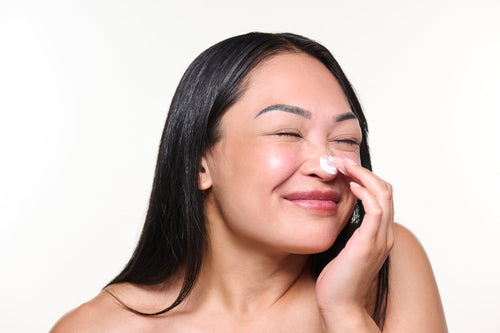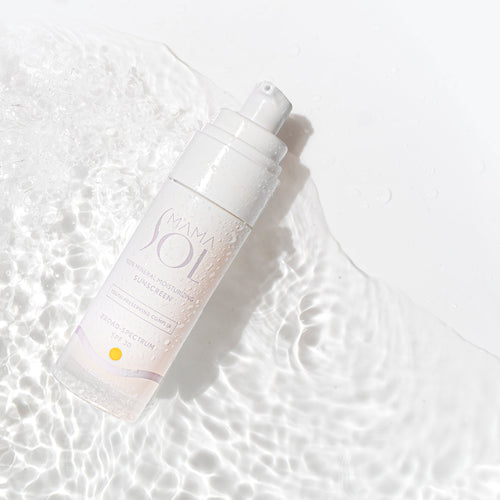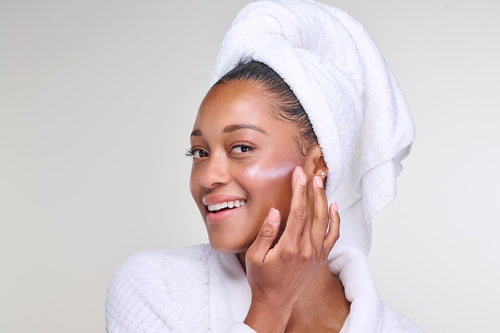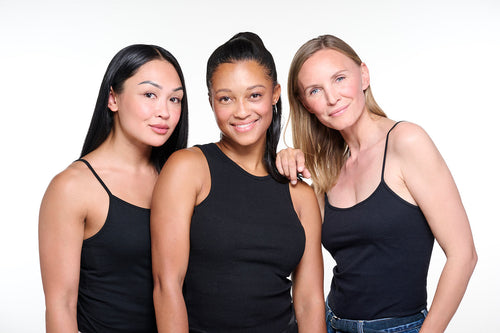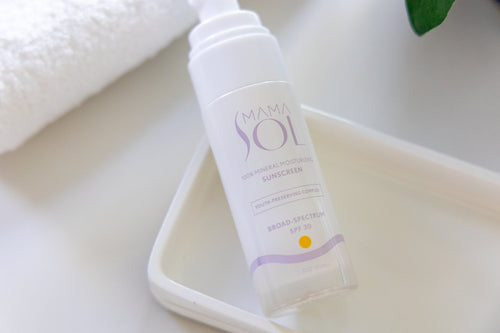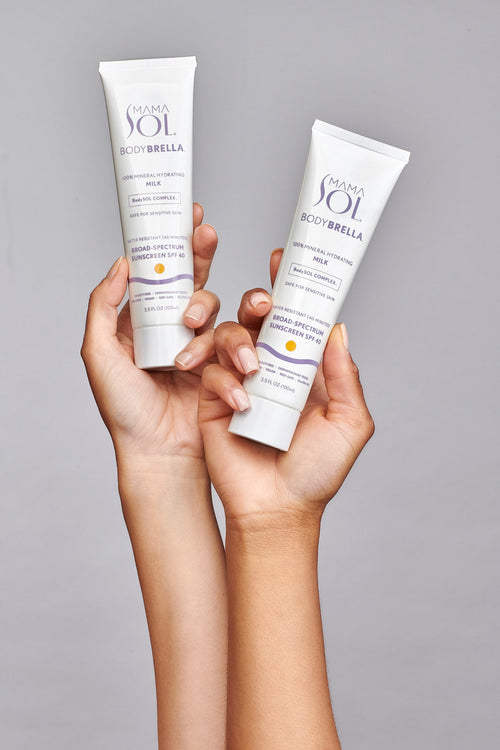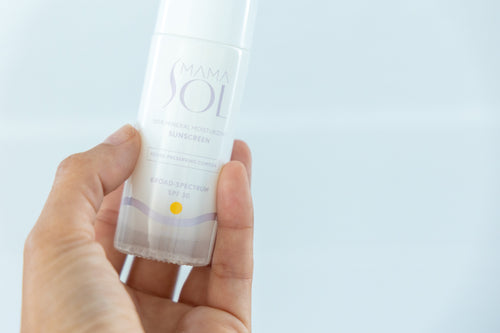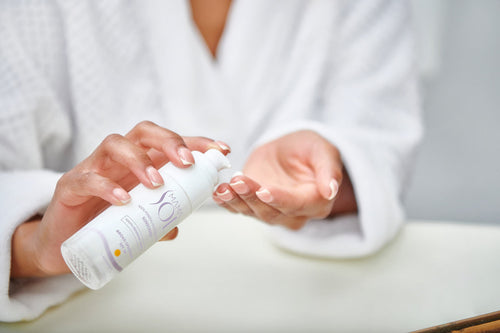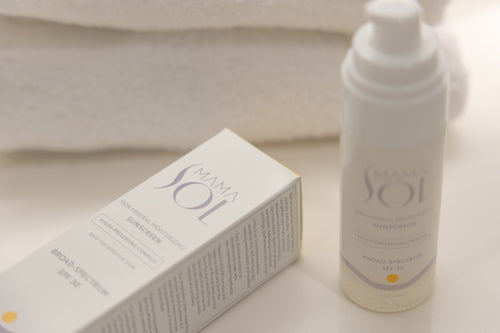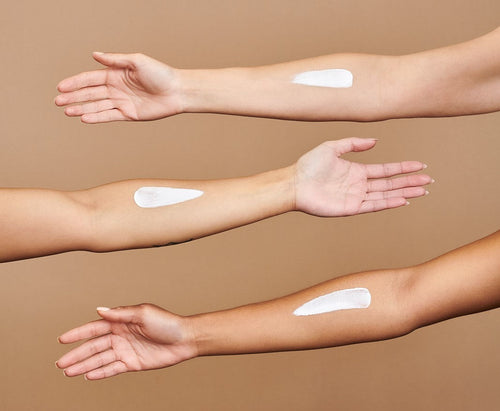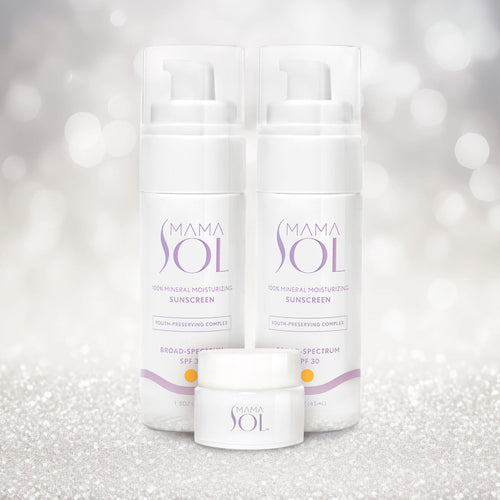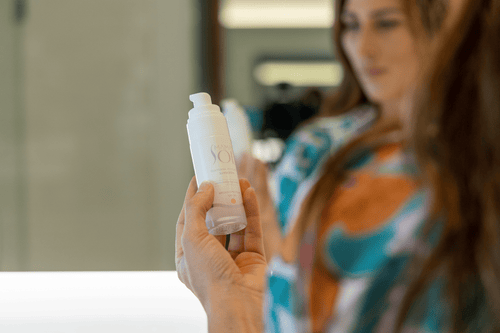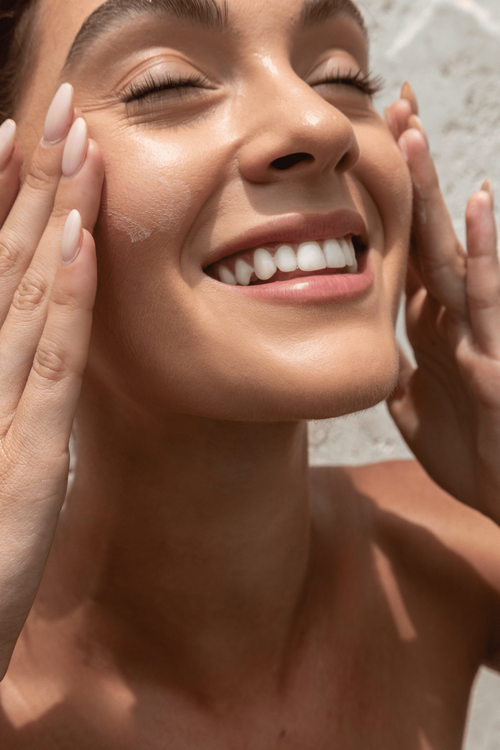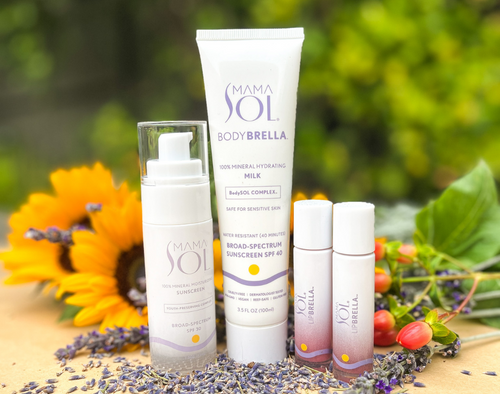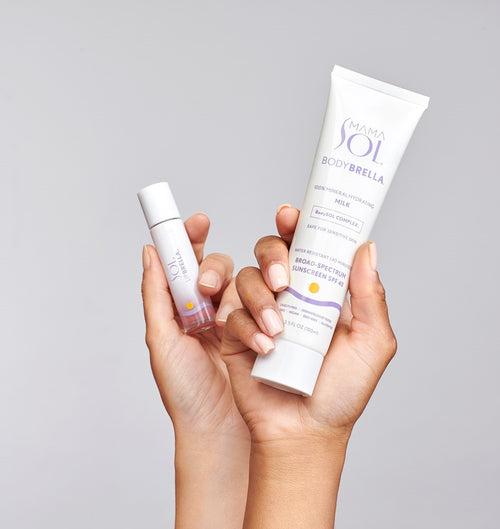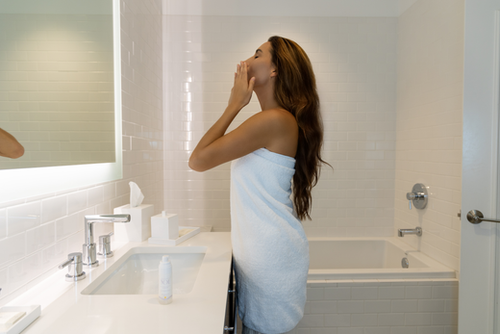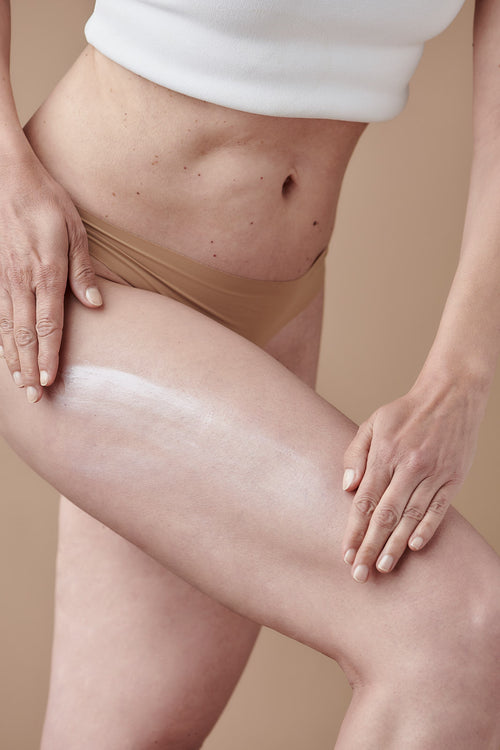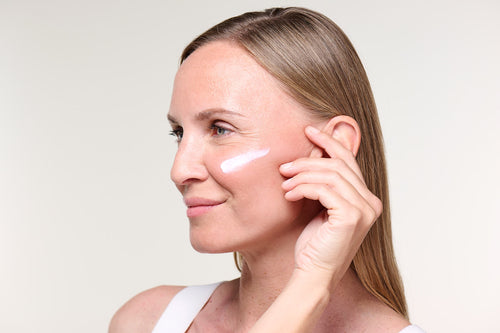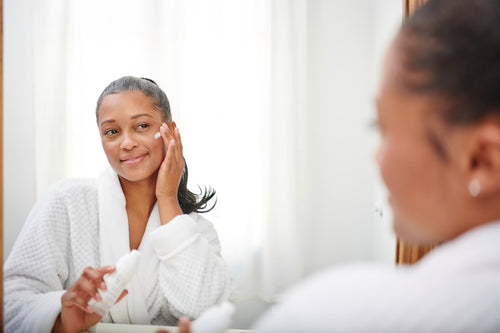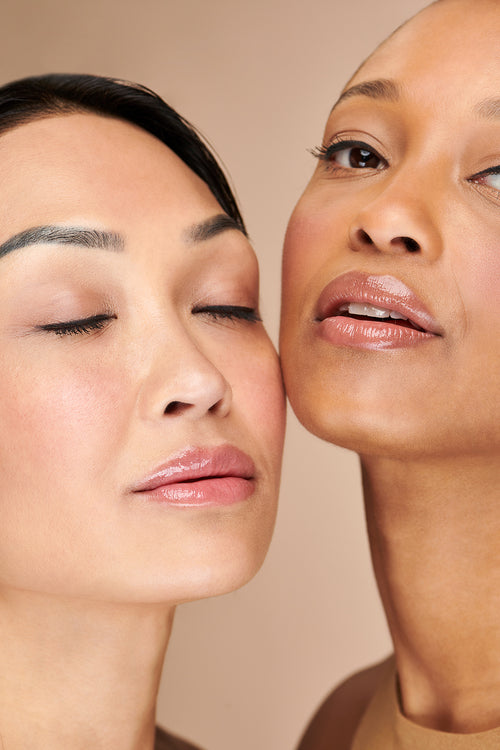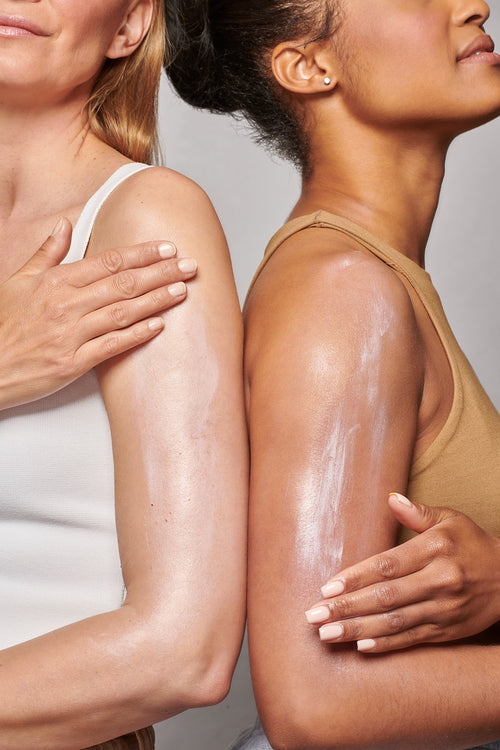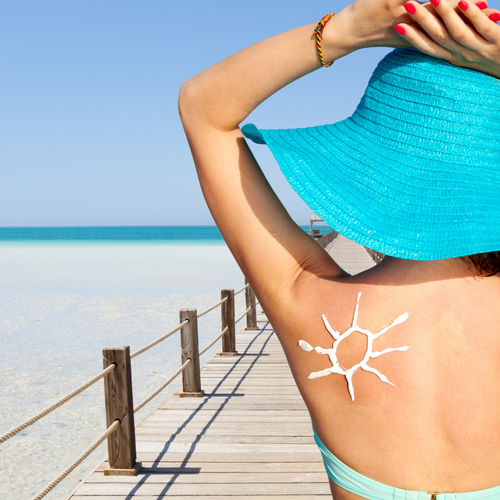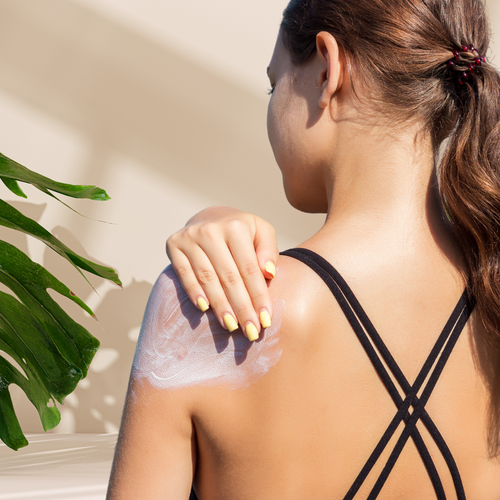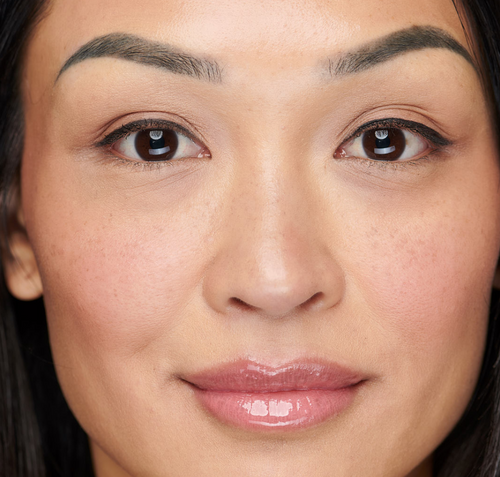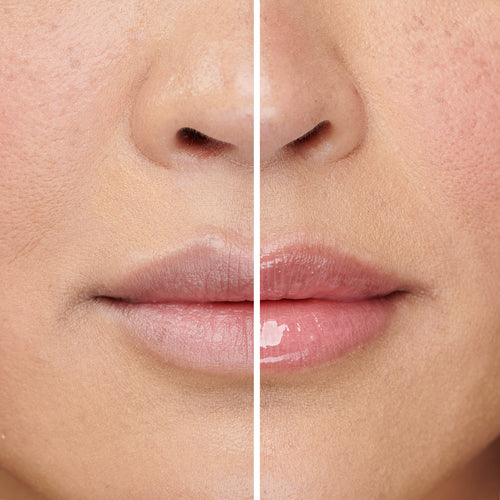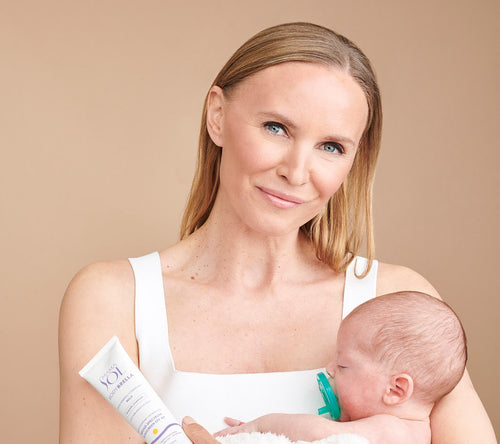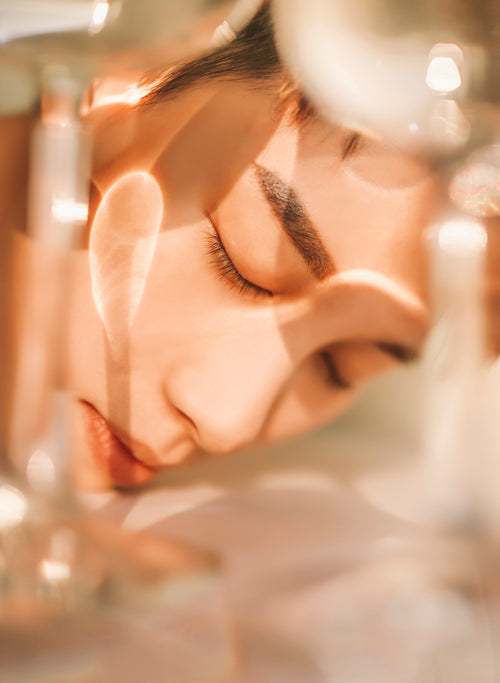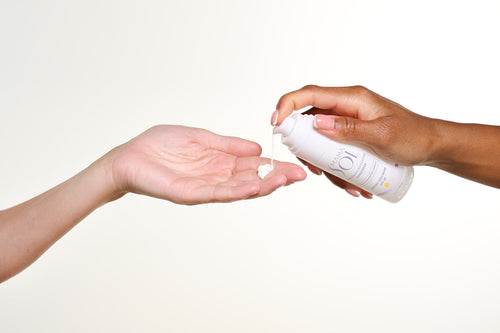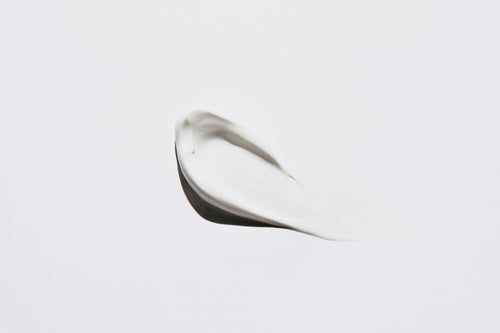
The postpartum era, often called the fourth trimester, is a time of massive change. It’s a mix of all the emotions, from joy and relief for a healthy baby’s arrival to nostalgia and anxiety about how to take care of your new tiny human. While you’re now devoted to keeping the little one alive, it’s just as important to take care of yourself.
Whoever said that you have to take care of yourself before you can take care of someone else (like the oft-repeated air mask metaphor on airplanes) obviously did not try to survive on 2-4 hours of sleep a night for weeks at a time. While trying to breastfeed, pump, or mix formula, a tiny human squeals and screams for hours on end. Social media turned the act of pregnancy and motherhood into a public performance that can feel like an endless competition—just know that in reality, we’re all just trying to survive and figure it out as we go.
We remember how many bodily surprises came with pregnancy—why didn’t anyone tell us that we’d feel extra-clumsy due to relaxin, a hormone that helps soften the ligaments in your pelvis and body? Paying attention to your postpartum skin, which has been going through its own journey, is so important. From melasma and hormonal acne to stretch marks and extra sensitivity, your skin—the body’s largest organ—will experience so many changes in the postpartum period. Ch-ch-ch-changes are the only constant in the fourth trimester, but we got you, mama.
Common Post-Pregnancy Skin Changes
Hormonal Fluctuations: One of the most significant contributors to post-pregnancy skin changes is hormonal fluctuation. During pregnancy, you get a surge of hormones like estrogen and progesterone, which can result in that legendary “pregnancy glow” you hear about all the time.
The reality? Some of us mamas feel more dull and dry than glowy skin goddess, tbh. These changes are entirely normal as your body adjusts back to its pre-pregnancy state. Real talk: It can take up to two years postpartum for your body to return to its pre-pregnancy hormone levels.
Stretch Marks: Stretch marks are like the urban legend or fear everyone whispers about, long before you ever become pregnant. They occur as a result of your skin stretching rapidly to keep up with the growth of your baby. Don’t forget: you are literally growing another human inside you, nbd.
While stretch marks can also be a point of pride because they show how incredible mama’s bodies are, they can also be hard to accept. While they often appear on the belly, stretch marks can also show up on the thighs, breasts, and butt. Initially, stretch marks may appear red or purple, gradually fading to a lighter color over time.
Hyperpigmentation (Melasma): Melasma, also known as the "mask of pregnancy," typically shows up as darker patches of skin on your face. In particular, melasma shows up on the cheeks, forehead, and upper lip area; it’s caused by hormonal changes during pregnancy, which can trigger the overproduction of melanin (the pigment in skin). Melasma may be a challenge during pregnancy and postpartum; it can fade post-pregnancy or require treatment and professional help to reduce hyperpigmentation.
Acne and Breakouts: Pregnancy is Puberty 2.0. Hormonal fluctuations during pregnancy that cause whiteheads, acne, and breakouts can also contribute to postpartum acne. You may go from incredibly dry skin to increased oil production and changes in skin texture. Postpartum acne usually shows up on the face, chest, and back.
Didn’t think you’d be worrying about bacne between diaper changes, did you? While postpartum acne is usually temporary, it can definitely be annoying and frustrating on top of all the other changes you’re experiencing.
Dryness & Sensitivity: Many new moms experience dryness and sensitivity post-pregnancy. Hormonal shifts, coupled with the constant handwashing and stress of caring for a newborn, can lead to irritated, itchy, and dry skin. It’s important to incorporate products that will soothe, hydrate, and nourish your postpartum skin; you’re already doing the same for your baby, so don’t forget yourself.
Establish a Post-Pregnancy Skincare Routine
Creating a post-pregnancy skincare routine requires understanding your skin's changing needs and choosing nourishing products and rituals that help you heal, hydrate, and balance out your skin and well-being. While brushing your teeth and taking a shower start to feel like luxuries in the nonstop newborn era, you’ve got to remember that those are basics. Keep it simple with your postpartum skincare routine.
-
Gentle Cleansing: Start your skincare routine with a gentle cleanser that removes dirt and makeup without stripping skin of its natural oils. Cleansing oils can often keep hydration locked in, along with non-scented, sensitive formulas for skin that’s easily irritated.
-
Hydration: Moisturizer is life. From face to body, we’re all about it. Hydrating your skin is crucial to maintaining its elasticity and suppleness. Choose a moisturizer that suits your skin type—opt for rich, creamy formulas with ingredients like hyaluronic acid and ceramides if you have dry skin; choose lightweight, non-comedogenic options for oily or combination skin.
- Sun Protection: Sun protection is non-negotiable, especially post-pregnancy. Choose a broad-spectrum sunscreen with a minimum SPF 30 to protect your skin from harmful UVA and UVB rays. Mineral-based sunscreens with active ingredients like zinc oxide and titanium dioxide (the only two rated generally safe and recommended by the FDA) are the safest choices, especially if you're nursing or have sensitive skin. We couldn’t find what we were looking for out there, so we created three 100% mineral sunscreen products to cover you from head to toe:
Face: Mama Sol 100% Mineral Moisturizing Sunscreen SPF 30
Body: Mama Sol BODYBRELLA 100% Mineral Hydrating Milk SPF 40
Lip: Mama Sol LIPBRELLA 100% Mineral Tinted Lip Oil SPF 20
-
At-Home Treatments: Address specific skin concerns such as stretch marks, hyperpigmentation, acne, and dryness with targeted treatments. Look for products with skin barrier-boosting ceramides, antioxidants, hyaluronic acid, and botanical extracts. If you’re nursing, avoid products containing retinoids. We like retinol alternatives like bakuchiol, which are safe throughout pregnancy and nursing. Herbivore’s MOON FRUIT Bakuchiol + Peptides Retinol Alternative Serum is great for reducing lines and wrinkles while helping restore tone, texture, and firmness.
-
Get Those Nutrients: A balanced diet rich in vitamins, minerals, and antioxidants is essential for skin health. Include plenty of fruits, vegetables, lean proteins, and healthy fats in your meals to nourish your skin. It can be tricky to nourish yourself while also taking care of a newborn, so at times we like a good green powder to supplement. Make sure any postnatal vitamins and nutrition supplements are safe for nursing/postpartum moms. We like Perelel Health’s Synbiotic Greens Powder.
-
Hydration from Within: You didn’t think you’d retire that gallon-size water bottle or Stanley tumbler after pregnancy, did you? Get that water throughout the day to ensure your skin stays hydrated and to flush out toxins. Good hydration helps keep skin supple and elastic and helps reduce breakouts and dry lips.
-
Professional Treatments: Your skin is beautiful, no matter what. But if your postpartum skin challenges continue and you find that the melasma isn’t fading or acne is getting worse, head to a professional. Skincare treatments such as facials, chemical peels, microdermabrasion, and laser therapies can address specific skin concerns under the guidance of a dermatologist or skincare professional.
- Self-Care and Mental Health: Motherhood is an emotional and mental rollercoaster with no rules. Look for self-care practices that support your mental, physical, and emotional well-being, such as mindfulness, meditation, yoga, and rest. While it seems impossible to nap when the baby naps (and super-tempting to clean the entire house instead), sometimes you have to let things go in order to focus on yourself. Managing stress levels is key to helping your skin heal and recover postpartum.
Skincare Products for Post-Pregnancy
When choosing skincare products for post-pregnancy, opt for gentle, nourishing formulations that cater to your skin's needs. Look for ingredients like hyaluronic acid, niacinamide, ceramides, antioxidants, and botanical extracts known for their soothing and restorative properties. Look for unscented, sensitive formulas that are non-comedogenic and dermatologist-tested.
Common Myths & Misconceptions
It's essential to debunk common myths and misconceptions about post-pregnancy skincare to ensure you get the best postpartum skincare and make informed choices.
- Myth: Stretch marks can be completely eliminated.
Fact: While moisturizers like Bio-Oil and professional treatments can improve their appearance, stretch marks may not be completely erased or fade on their own.
- Myth: If it says “natural” as an ingredient, it’s safe.
Fact: A lot of products are touted as “clean” formulas but still contain natural ingredients that can cause irritation, sensitivities, or allergic reactions in some people. Always do a patch test before using a new product. Call a doctor or dermatologist if needed.
- Myth: Higher SPF means better protection against the sun.
Fact: SPF (sun protection factor) measures protection against UVB rays, not UVA rays. Proper application and frequent reapplication are more important than SPF level, since most people don’t use enough sunscreen to begin with.
You’ll often feel like you’re starting over in the post-pregnancy era, all while trying to keep a tiny human alive. By understanding your skin’s changing needs, adapting a skincare routine, and prioritizing self-care, you can nurture your skin through this transformative phase. When in doubt, hydrate, hydrate, hydrate. Even a seemingly small ritual like applying body oil or lotion post-shower to lock in moisture—trust us, an uninterrupted 5-minute shower is going to feel like the ultimate luxury—can give you a much-needed boost in the midst of all the chaos. Take care of your body and mental health, and it’ll be easier to take care of your little one. It’s okay to ask for help and to take a moment for yourself.










